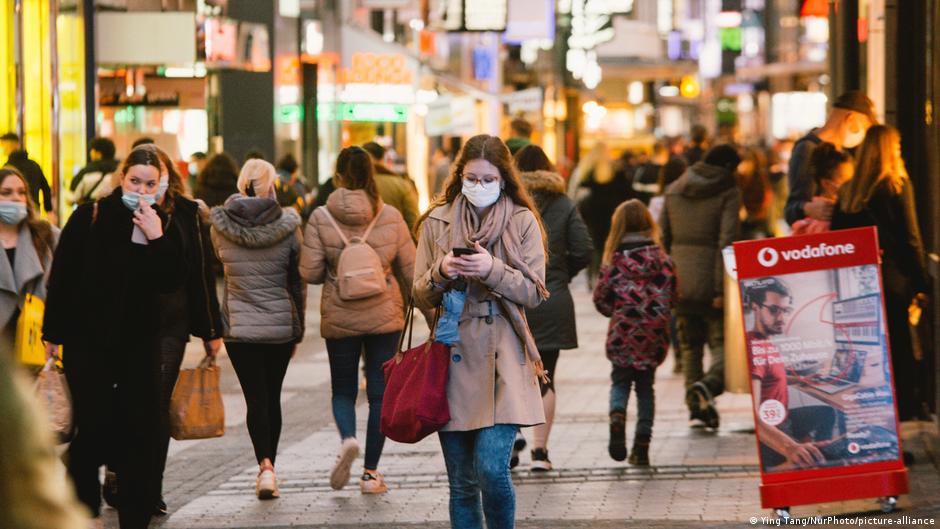Christian Lindner, Germany’s finance minister, didn’t pull his punches in describing the grim new reality facing Europe’s largest economy.
The country’s prospects had become “fragile”, he said on Wednesday. Growth forecasts were being downgraded. Life had become “much more expensive for lots of people”, with rising prices for gas, energy and food.
Germany is experiencing a squall of shocks that are darkening its economic outlook. Along with soaring inflation, persistent supply chain problems and weaker global demand are weighing heavily on its industrial sector.
“What’s most worrying is just how broad-based the weakness in the economy is,” said Clemens Fuest, head of the Ifo Institute, a think-tank. In previous downturns, services suffered but industry recovered, and vice versa. “But now we’re seeing weakness across the board.”
The eurozone’s powerhouse has become its weak link. Germany’s economy stagnated between the first and second quarters, while the single currency area as a whole grew by 0.7 per cent. Last month the IMF slashed its forecast for German growth in 2023 by 1.9 percentage points to 0.8 per cent, the biggest downgrade of any country.
While Italy, Spain and France recorded stronger than expected growth on the back of a tourism-fuelled boom, Germany has had to rely more on domestic demand. But with consumers labouring under high inflation, spending and confidence are fragile. Retail sales fell 8.8 per cent compared with a year previously — the biggest decline on record.
“People are feeling really insecure,” said Monika Schnitzer, an economics professor at Munich’s Ludwig Maximilian University and a member of the panel of economists advising the German government. “They’ve been told to keep money back for higher energy bills and that has led to a drop in consumption.”
The country’s economy is now so weak that many fear a technical recession — defined as two consecutive quarters of negative growth.
Pessimists point to a drop in water levels on the Rhine, which is affecting river traffic in one of Germany’s most heavily industrialised areas, the recent rise in tensions between Beijing and Taiwan, and the prospect of a global downturn — always a problem for export-oriented economies such as Germany’s.
The BDI, Germany’s main business lobby, said late last month that a recession was becoming more and more likely. Ordinary people as well as companies were suffering from higher energy prices that were stoking inflation, while China’s zero-Covid strategy was “paralysing global trade”.
Schnitzer said much hinged on whether Russia turned off the gas tap completely and whether Beijing shuttered ports and factories should Covid-19 case numbers rise.
“If we can muddle through and things don’t get worse in the US and China, we may be able to avoid a recession, but even then we can’t expect a significant upswing,” she said. “Either way, the uncertainty is just huge at the moment.”
Recent data have provided ammunition for those predicting a downturn. Last month Ifo’s closely watched index of business confidence fell to its lowest level in more than two years.
Though industrial production saw a modest increase in June, orders fell 0.4 per cent — the fifth monthly decline in succession — and are now 9 per cent below their level a year ago.
The challenge of the coming months will be for businesses to steer a course between the Scylla of continuing problems with supply chains and the Charybdis of rising gas prices. “They expect no relief on either,” said Fuest of Ifo.
About 73.3 per cent of companies surveyed by Ifo in July said they were experiencing shortages, with about 90 per cent of companies in the electronics, machine-building and auto sectors struggling to procure all the materials and intermediate products they needed.
An even bigger problem is the increase in energy prices. Hans Jürgen Kerkhoff, president of the German Steel Federation, said the steel industry was incurring additional costs of about €7bn a year, compared with 2021, as gas and electricity bills rose. Government plans to impose a levy on gas consumers to help struggling gas supply companies “would add another billion”, the group said.
For other companies, it is the instability that is most troubling. Claus Bauer, chief financial officer at auto parts supplier Schaeffler, said: “We’re talking about tripling [of energy prices] one day, then going down by 30 per cent the next day.” He added that his company had locked in contracts until the end of the year.
Some companies are more upbeat. One is Bonn-based Deutsche Post DHL, one of the world’s largest logistics groups by revenue, which has been posting record profits in the past year.
“The current predictions from some economists are, from my perspective, too pessimistic,” said chief executive Frank Appel. “In our numbers, we don’t see any recession yet.”
Weaker global demand has pushed down oil prices, which Appel said would mean lower inflation. “Also, rates are coming down in air freight and ocean freight,” he said. “These are healthy trends.”
There are other glimmers of hope. “The fact that companies have such a big backlog of orders . . . speaks against a recession,” said Nils Jannsen of the Kiel Institute for the World Economy. That should allow them to ramp up production even if orders stagnate or are cancelled, he added.











